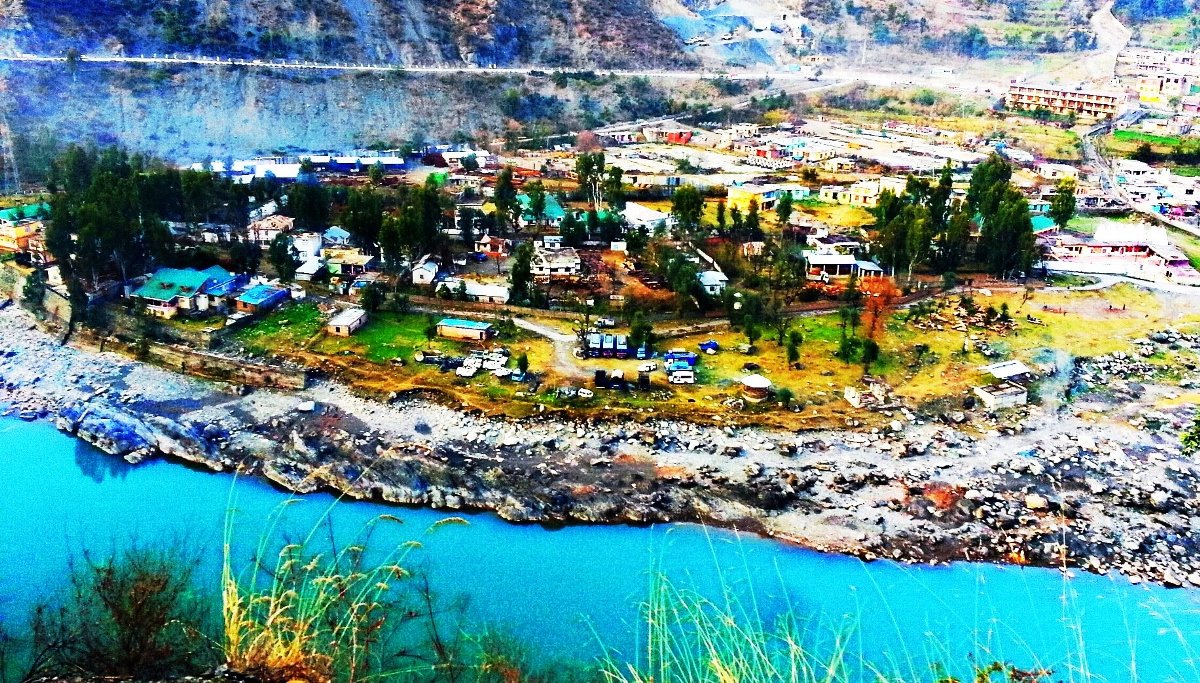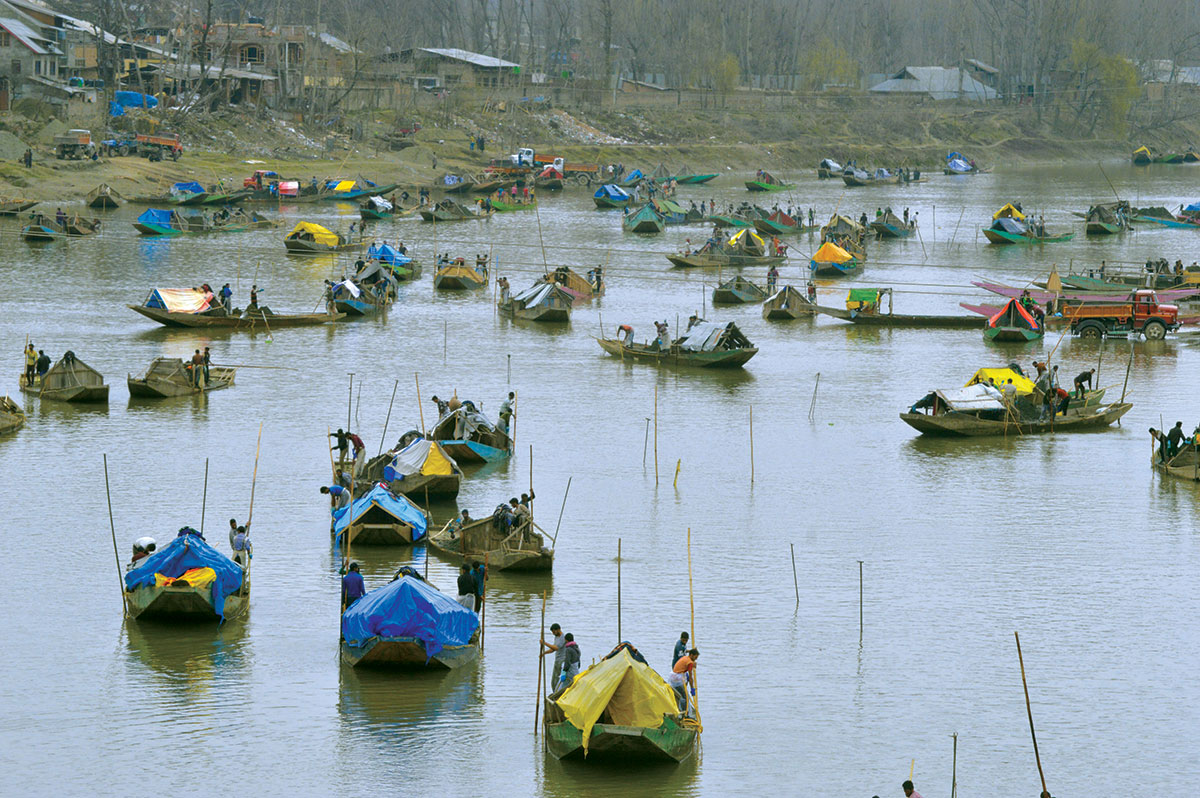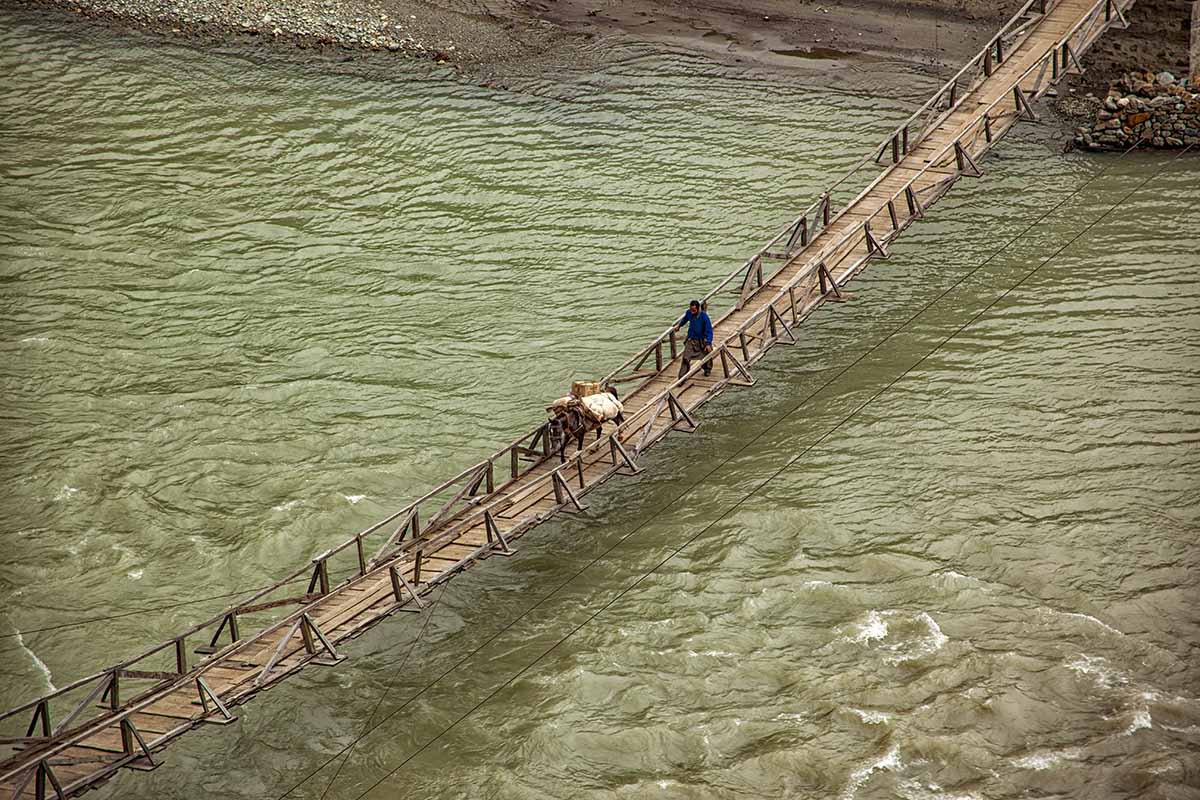by Dr M Junaid Jazib
Rivers, the arteries of our planet, are more than just bodies of water meandering through the landscapes. They are the lifeblood of our ecosystems, the cradles of civilizations, and the pulse of our Earth’s vitality.
Throughout history, rivers have laid the nurturing foundations of human societies. They have sustained civilisations, providing essential water for agriculture, transportation, and sustenance. Even today, rivers remain a primary source of freshwater for drinking, agriculture, and industry. These services are not only crucial for human survival but also for the global economy.
Access to clean river water is fundamental for public health and sanitation. The management of river water profoundly impacts the well-being of communities. Moreover, hydroelectric power plants harness the energy of flowing water to generate electricity, not only reducing greenhouse gas emissions but also diversifying energy portfolios and enhancing power grid resilience. The recreational opportunities that rivers offer, including boating, fishing, and camping, draw tourists and contribute significantly to the economies of regions blessed with scenic waterways. In many parts of the world, rural livelihoods still heavily rely on rivers.
Beyond their economic contributions, rivers hold profound social and cultural significance, often serving as focal points for human settlement, cultural practices, and recreation. They have inspired art, culture, and spirituality. Many of the world’s great cities, from London to Cairo, owe their existence to the presence of rivers. In our country, the Ganges is a continuous source of salvation and spirituality for millions. These waterways not only provided sustenance but also acted as natural defences, enabling the growth of urban centres.

More significantly, rivers are living sanctuaries teeming with biodiversity within Earth’s ecosystems. These aqueous realms, home to an astonishing array of life forms, from microscopic plankton to majestic aquatic mammals, are cradles of evolution. Riparian zones along riverbanks offer fertile ground for diverse flora and fauna, creating habitats crucial for countless species. These zones provide a habitat for a wide range of plant and animal species, including birds, mammals, and reptiles.
The consistent availability of water in these areas allows for lush vegetation, making them ideal places for foraging, nesting, and shelter. Many species of fish, amphibians, and waterfowl depend on rivers for breeding and feeding.
Moreover, rivers, as corridors of life, facilitate the movement of species, allowing them to adapt to changing conditions and maintain genetic diversity. Migratory fish, such as salmon, depend on rivers to complete their life cycles. The health of river ecosystems influences the health of the oceans they feed, creating a profound web of interconnected life.
Planet’s Lifeline
Rivers are, quite literally, the lifelines of our planet. They serve as nature’s circulatory system, transporting vital nutrients, supporting diverse habitats, and regulating the health of the earth’s ecosystems. They transport water from mountains to oceans, influencing climates and sustaining ecosystems along the way. These watercourses connect distant regions, facilitating the flow of nutrients, sediments, and life itself. Rivers not only provide life-giving water but also serve as dynamic geological forces, carving canyons and valleys over millennia.
Moreover, rivers are both indicators and mitigators of climate change. Rising temperatures alter river flows, leading to more frequent and severe floods and droughts. Their waters hold clues about global temperature changes, as melting glaciers contribute to their flow, and changing ecosystems along riverbanks reveal shifting climates. They play a significant role in regulating regional and global climates, and moderating temperature extremes in their vicinity, which is vital for both terrestrial and aquatic ecosystems. River systems also influence weather patterns, impacting rainfall distribution and the overall climate of regions through the moisture they release into the atmosphere.
Under Siege
Despite their critical role in sustaining life and economies on the earth’s surface, river ecosystems are under siege. Pollution, deforestation, over-extraction of water, and climate change are all taking their toll. Industrial discharges, agricultural runoff, and untreated sewage are poisoning these waterways, endangering not only aquatic life but also the health of the communities that depend on them. Deforestation, especially in river catchment areas, contributes to soil erosion and sedimentation in rivers, leading to reduced water quality and increased vulnerability to flooding. Climate change exacerbates these problems, with rising temperatures altering flow patterns and causing more frequent and severe droughts and floods.

The consequences of neglecting our rivers are far-reaching. Loss of biodiversity, water scarcity, food insecurity, and the increased risk of natural disasters are just some of the dire outcomes. Communities that rely on rivers for their livelihoods find themselves in jeopardy as their water sources dwindle and become contaminated.
In response to these challenges, clean-up campaigns, tree-planting initiatives, and educational events are just some of the ways people are demonstrating their commitment to preserving these lifelines.
Mounting Concern
The clock is ticking, and the urgency of taking action to protect our rivers cannot be overstated. The good news is that solutions are within our grasp. First and foremost, we must commit to preserving and restoring our rivers’ health. This requires comprehensive policies and regulations to control pollution, prevent deforestation in river catchment areas, and promote sustainable water use. Investments in wastewater treatment facilities are essential to prevent the discharge of pollutants into rivers.

Riparian communities must be engaged and empowered to become stewards of their rivers. They can play a critical role in monitoring water quality, conserving biodiversity, and promoting sustainable land use practices. Climate change mitigation and adaptation strategies are also vital. Reducing greenhouse gas emissions is imperative to slow down the warming of the planet and mitigate the extreme weather events that affect our rivers.
In 2023
As we celebrate World Rivers Day in 2023, let us reflect on the pivotal role that rivers play in our lives and the urgent need to protect them. This day not only embodies a call to action but also an opportunity to raise awareness about the importance of rivers. We must educate the public about the vital role of these waterways in our lives and the urgent need to protect them. Through education and advocacy, we can mobilize individuals, communities, and governments to take meaningful steps towards river conservation.

It is important to remember that all is not lost. With concerted effort and a collective commitment to change, we can restore the health of our rivers. Rivers have an incredible ability to recover when given the chance. Ecosystems can rebound, and water quality can improve.
As custodians of our planet, we bear the responsibility to safeguard these vital arteries. Acknowledging the profound importance of rivers in nurturing life, culture, and prosperity, we must prioritize their conservation. In this endeavour, we honour not only our own well-being but also the intricate ecosystems and cultural heritages that rivers cradle. Embracing this calling, we ensure the enduring legacy of these aqueous wonders for generations yet to come.
(The author is heading the Environmental Science department at the Government Post Graduate College, Rajouri. Ideas expressed in the write-up are personal.)


